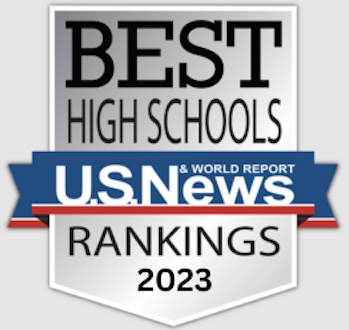Discipline
At P.K.Yonge, our philosophy on discipline stems from the understanding that students make choices regarding their behavior. In the event that a student makes a choice that isn’t acceptable for school, it is our responsibility to help them correct that behavior and make better future choices.
Driven by our commitment to equity, we believe that discipline should be fair and restorative and be based on input from behavior coaches, faculty, staff, families and students.
Each of us plays an important role in student discipline. Behavior coaches, faculty, staff, families and students work as partners to support students in creating sustainable changes in behavior.
Below is an outline of our goals, preventive strategies, responsive strategies, and a decision-tree that starts to define teacher-managed behaviors and behaviors that require support.
DISCIPLINE GOALS
- Maximize student time engaged in learning
- Minimize disruption to the learning environment
- Support social-emotional and academic development
- Strengthen partnerships between teachers, administration and families on behalf of students
- Engage in collaborative problem solving
PREVENTIVE STRATEGIES
- Beginning and End of Class 10 Minute No Passing Time (10:10)
- Classroom Sign-0ut Sheets
- Hall Passes
- Policies for Phones/Devices in Class
- Clearly Articulated Expectations for Behavior
- Emergency Sub Plans Provided
- Core Social-emotional Curriculum (K-5 – Caring School Community)
- Behavior Matrix
- Community Meeting
- Morning Meeting
RESPONSIVE STRATEGIES
There is a range of responsive strategies that can be employed by different stakeholders in the school community. Below we have provided an outline of responsive strategies that different stakeholders carry out. You will also find clarification for a few of our most common responsive strategies.
| Classroom Teacher Verbal Correction/Warning Parent Contact/Conference Loss of Privilege Confiscation Restitution |
Learning Community Leader Verbal Correction/Warning Parent Contact/Conference Loss of Privilege Confiscation Restitution |
School Counselor Verbal Correction/Warning Parent Contact/Conference Restitution Referral to: Substance Abuse Counselor, Social Worker, School Counselor, School Psychologist, Family Counselor |
| Behavior Coach and/or Administration Verbal Correction/Warning Parent Contact/Conference Restorative Conference Loss of Privilege Lunch Detention In-school Detention (ISD) School Community Service Work Confiscation Restitution Loss of Extracurricular Activities Out-of-school Suspension |
Referral to: Substance Abuse Counselor, Social Worker, School Counselor, School Psychologist, Family Counselor Collaborative Attendance Contract Collaborative Behavior Contract Probationary Substance Contract Behavior Intervention Plan Functional Behavioral Assessment Consultation with Law Enforcement Recommendation for Expulsion |
Following are descriptions of three of our most common responsive strategies: lunch detention, in-school detention, and restorative conferences.
Lunch Detention ?
What happens when a student is assigned to Lunch Detention?
- Parent/Guardian contacted
- Coaching conversation with student
- ISD support emails and/or sends pass to specific teachers about students serving lunch detention each day. After checking the teacher absentee list, ISD support notifies substitute if needed.
- Teachers send students to lunch 5 minutes early to get lunch in order to be in ISD at the start of lunch.
- ISD support alerts extracurricular leader that student is in lunch detention (ISD will have rosters for sports teams, band, performing arts, robotics, and clubs).
What happens in Lunch Detention?
- Students report to ISD.
- Electronic devices are collected.
Student eats lunch in silence. - At the end of the lunch period, the student is sent back to class on time and may be asked to assist cafeteria area clean up.
- Student returns to class on time.
In-school Detention (ISD)?
What happens when a student is assigned to ISD?
- Parent/Guardian contacted
- Coaching conversation with student
- Teacher writes referral immediately if possible, or no later than the end of the school day.
- Student may be assigned to ISD for the specific period from which a referral was written or for multiple periods depending on the severity of the offense.
- ISD Support alerts teachers through Skyward that a student will be in ISD and needs work provided. Teachers will be notified ahead of time when possible in order to prepare work for a student in ISD
- ISD Support alerts Attendance when a student reports to ISD so that the student is not marked absent.
- Students in ISD through the lunch period are released 10 mins prior to the lunch period to get lunch.
- ISD Support alerts extracurricular leader that the student is in ISD (ISD will have rosters for sports teams, band, performing arts, robotics, and clubs).
What happens in ISD?
- Students report to ISD with materials.
- Electronic devices are collected.
- Student works on assignments provided by teacher. If no work is provided, ISD support emails student’s teachers requesting work. If student has no digital work, Chromebook is collected.
- ISD supplies Chromebooks for students who don’t have a working Chromebook.
- ISD support has access to device-monitoring software for students using Chromebooks in ISD.
Restorative Conference
What happens in a Restorative Conference?
- Parents/Guardians are informed when students are experiencing relationship struggles with peers, teachers, or other members of the school community.
- Parties in conflict are spoken with individually and invited to participate in a Restorative Conference.
- If all parties agree, a Restorative Conference is scheduled.
- Facilitators set ground rules for the Conference, setting a tone of mutual respect and civility.
- Facilitators use a structured protocol (see: Restorative Conference Form) to gather all participants’ perspectives about what happened, the impact, and what is needed to repair the relationship. The protocol supports decision-making about next steps with the goal of preventing future relationship breakdowns.
- Parents/Guardians are informed of the outcome of the Restorative Conference; teachers, counselors, and others may be informed as needed.




